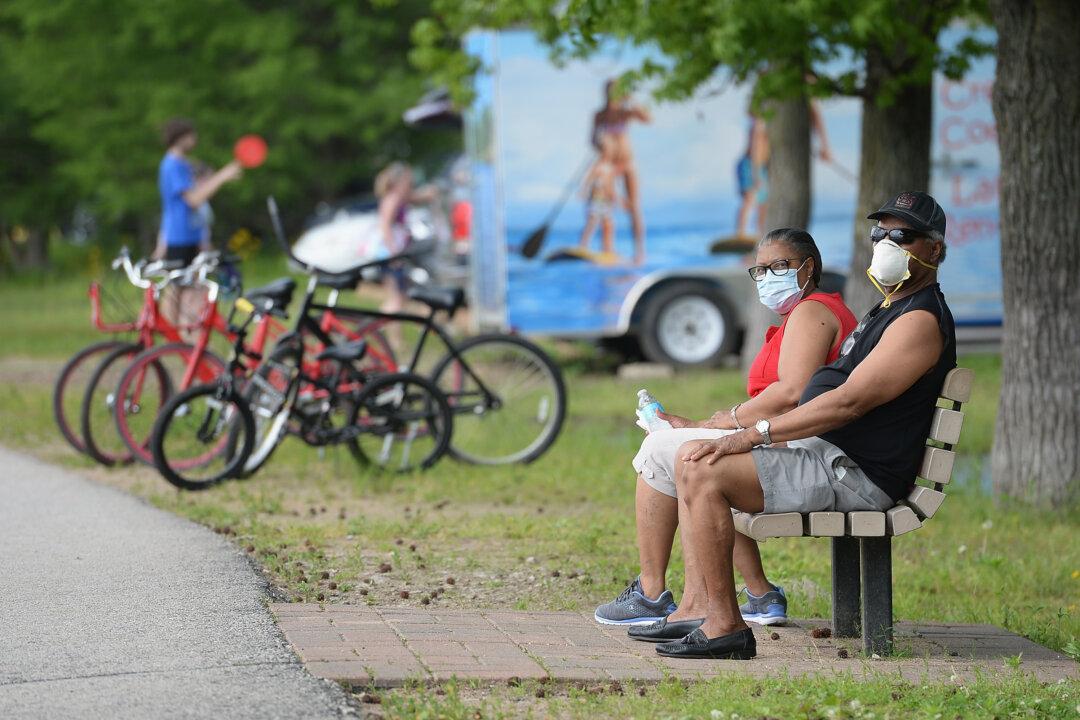Officials said the city of St. Louis and St. Louis County are imposing an indoor mask mandate for anyone over the age of 5 regardless of vaccination status, citing a rise in COVID-19 hospitalizations and the spread of the Delta variant.
The new rule, which goes into effect on July 26, requires mask-wearing in indoor public places and on public transportation, according to a statement by the office of the mayor of St. Louis. The mandate represents a stricter posture than the mask-wearing guidelines from the Centers for Disease Control and Prevention (CDC), which says that fully vaccinated people need not wear facial coverings indoors, although the agency defers to local rules in the matter.





